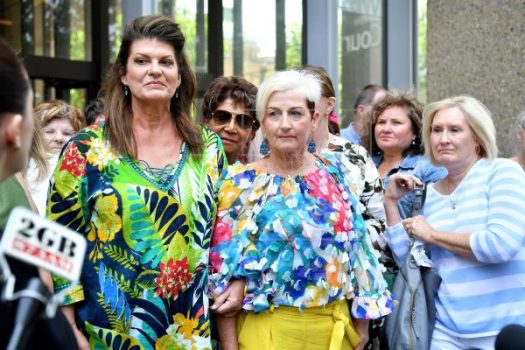 Hundreds of Australian women left in debilitating pain by faulty trans-vaginal mesh devices have won a landmark case against multinational pharmaceutical manufacturer, Johnson & Johnson.
Hundreds of Australian women left in debilitating pain by faulty trans-vaginal mesh devices have won a landmark case against multinational pharmaceutical manufacturer, Johnson & Johnson.
The case was launched on behalf of 700 women who had pelvic mesh and tape products implanted in their bodies to treat common complications of childbirth.
The Australian class action against companies owned by Johnson & Johnson was won on behalf of 1,350 women who had mesh and tape products implanted to treat pelvic prolapse or stress urinary incontinence, both common complications of childbirth.
The devices all but ruined the lives of many women, some of whom have been left in severe, debilitating and chronic pain and often unable to have intercourse. The vast majority also suffered a significant psychological toll.
The mesh is reported to have eroded internally in many cases, causing infections, multiple complications which are often near impossible to completely remove.
Australia’s federal court heard that the three women who led the action, Kathryn Gill, Diane Dawson and Ann Sanders who respectively described their pain as being so bad that they struggled to breathe.
Although Johnson & Johnson viewed the devices as a lucrative earner, the court previously heard that the women were used as ‘guinea pigs’ in an experiment by the multinational who allegedly took a ‘sell first, test later’ approach.
It was gathered that the devices were not properly tested for safety before being allowed into the Australian market even though Johnson & Johnson and its associated companies knew the potential for serious complications.
The companies were accused of launching a wave of aggressive promotion at doctors, marketing the devices as cheap, simple to insert and a relatively risk-free way to boost profits.
The plaintiffs alleged that the potential dangers of the devices were either minimized, downplayed or ignored, both in communications to doctors and patients. When patients complained of pain, they were frequently disbelieved.
The women in the courtroom broke down in tears after Justice Anna Katzmann delivered her scathing judgment against the Johnson & Johnson companies.
They consoled one another as Katzmann left the bench and later spoke of the unique bond the ordeal had forged between them.
Speaking outside court, one of the claimants, Julie Davis said the judgment was a great move in the right direction which would go some way in healing the damage done.
Davis said the ordeal had made her world a lot smaller as a woman who thought she could do anything and be what she wanted to be.
“I always knew they should be held accountable and in my heart of hearts, today has put that right. The corporates have a lot to answer for. They’ve treated women essentially like guinea pigs and lied about it, and done nothing to help,” she said.
Some of the products which have been the subject of separate class actions in the United Kingdom and United States have since been removed from the Australian market.
The hearing began in mid 2017, spanning until February 2018 when Katzmann began her deliberations on the case which has been described as one of Australia’s largest product liability class actions.
Johnson & Johnson can however still appeal the judgement.

ICC Issues Arrest Warrants For Netanyahu, Gallant And Al-Masri
Russia Fires Intercontinental Missile In Ukraine Attack — Kyiv
South African Police Raid Warehouses Amid Food Poisoning Deaths
Russian Missile Strike Kills Eight, Wounds 39 In Ukraine’s Odesa Region